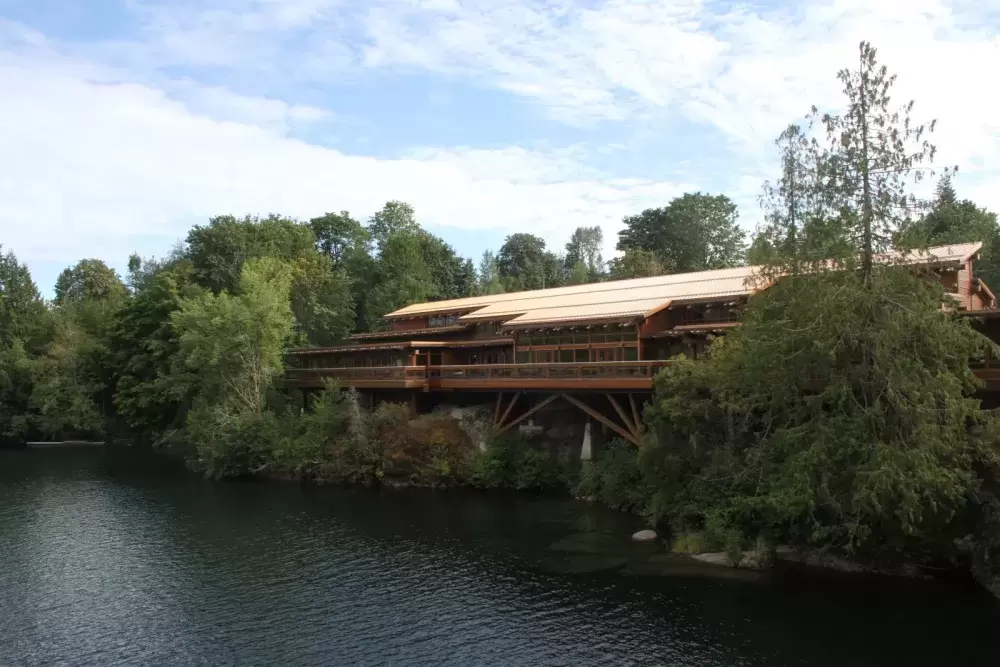Tseshaht First Nation is expected to soon have major savings on its energy bills thanks to some substantial funding from the provincial government.
It was officially announced in late April that the B.C. government would provide $500,000 to Tseshaht so that the First Nation could install a new heating, ventilation and air-conditioning (HVAC) system at the local building, which includes its administration offices as well as a health centre.
Tseshaht First Nation’s Chief Councillor Ken Watts said the building’s current system has a heat pump that is outdated.
“Our hydro bills can be very expensive,” Watts said, adding sometimes the monthly cost can be around $5,000.
Watts added he anticipates when the new system is installed and operational, in all likelihood by some point later this year, the First Nation will be saving an estimated 25 per cent on its monthly heating bills.
Watts said ideally his First Nation should have replaced its current heating system at the Tseshaht building years ago.
“We don’t have half a million dollars laying around,” he said. “We wouldn’t be able to do this without the (provincial funding). If we were able to do it we would have done it.”
The funding Tseshaht received is through the First Nations Clean Energy Business Fund (FNCEBF), which is part of the province’s CleanBC plan to cut down on climate-changing emissions.
Watts said his First Nation had also previously submitted an application to the FNCEBF but was denied, as provincial officials explained funds were not available at the time.
The First Nation then sent in a second application.
Though the official provincial announcement of funding recipients was made public last Thursday (Apr. 27), Watts said his First Nation was notified on March 21 that its second request for this HVAC project had been approved.
Nine First Nations throughout the province, including three on Vancouver Island, collectively received more than $1.4 million in the latest funding announcement.
Officials with Huu-ay-aht First Nations received word they will receive about $50,000 to develop a community energy plan to address regular power outages and inefficient heating for community members, improving costs and quality of life.
Including the latest funding recipients, more than 150 Indigenous communities have received about $20 million in capacity and equity funding for projects since the FNCEBF began. Projects have focused on energy efficiency, clean energy, feasibility studies and fuel switching.
Watts said installing the new HVAC system is part of his First Nation’s larger energy plan, which will be presented to council later this month.
Tseshaht’s energy plan includes installing an EV charging station in the community as well as installing solar panels and more efficient heat pumps in other local buildings.
“There is a whole host of things we’d like to do our community,” Watts said, adding he’s hoping the First Nation will receive support from the private sector as well as the provincial and federal governments to implement some of its ideas.
Various politicians also speak highly of the various Indigenous-led clean energy projects that received funding.
“The B.C. government is working in partnership with First Nations to build a better future that advances reconciliation and supports resilient communities on Vancouver Island and the central coast,” said Murray Rankin, the minister of Indigenous relations and reconciliation.
Josie Osborne, the minister of energy, mines and low carbon innovation, is pleased to see First Nations are among those taking the lead on clean energy projects.
“Through our CleanBC Plan, we are supporting investments and projects that help communities reduce greenhouse gas emissions, increase energy efficiency, stimulate economic activity and promote partnerships that advance British Columbia's growing clean-energy sector,” Osborne said. “It's great to see First Nations on the central coast and Vancouver Island leading renewable energy projects to meet their electricity demand, reduce air pollution, improve environmental outcomes and create local jobs.”
George Heyman, the minister of environment and climate change strategy, echoed the sentiment the provincial government is working towards a cleaner and better future via its CleanBC Roadmap to 2030.
“In partnership with Indigenous peoples, these clean energy projects will support First Nations communities to improve air quality, reduce carbon-related pollution and increase their energy independence,” Heyman said.

